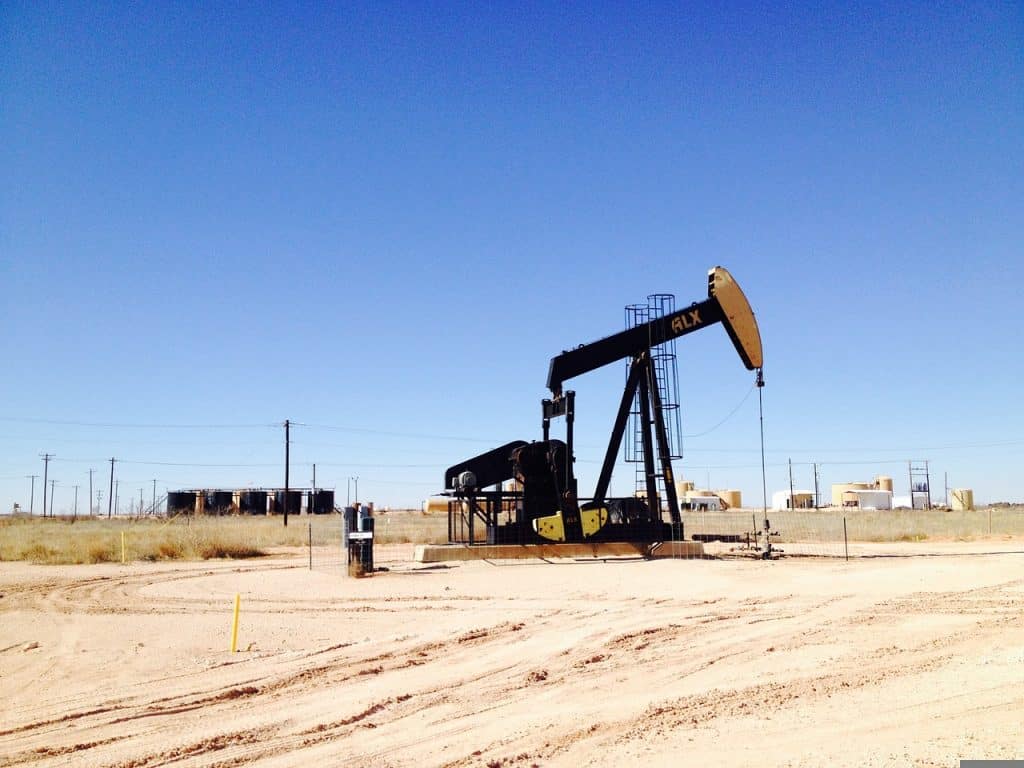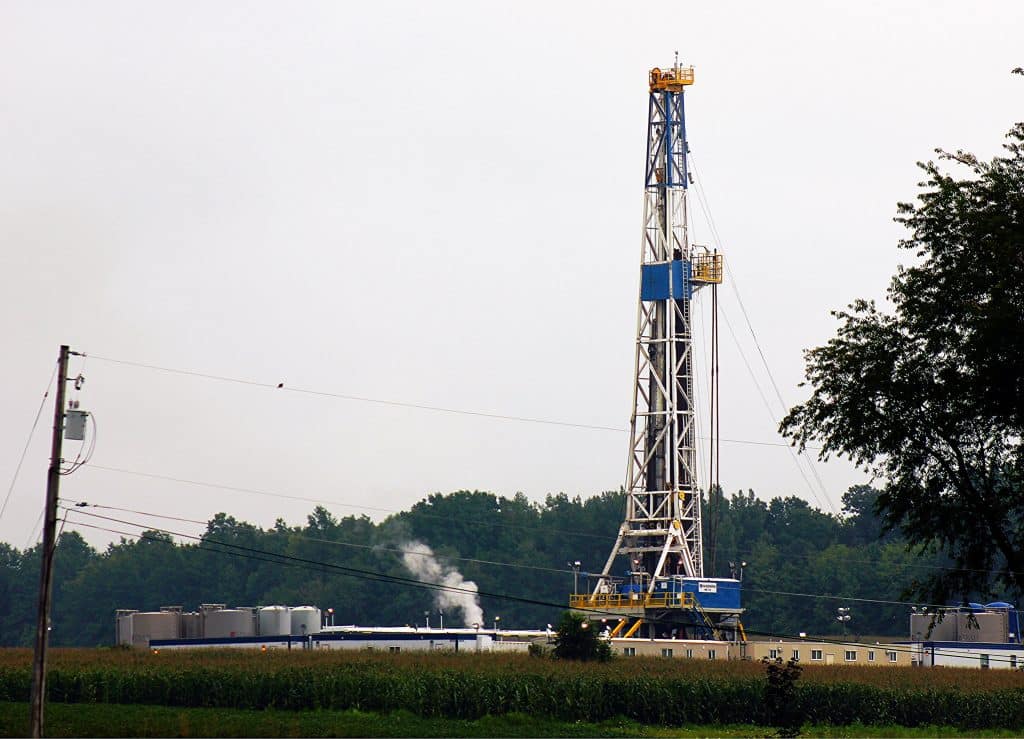You may have heard about fracking if you’ve been paying attention to the news lately. But what is it, exactly? And how does it work?
Also known as the hydraulic fracturing process, fracking extracts natural gas and oil from shale rock formations. Shale is a type of rock made up of compressed mud and clay.
This technology has been around for over 60 years, but only in recent years has its use exploded to access new sources of energy. Fracking in the US has grown exponentially, with the country now producing more natural gas than ever before.
But the process isn’t without controversy. There are concerns about its environmental impact, particularly the risk of water contamination.
In recent years it’s become a hot topic, with proponents touting its economic benefits and detractors raising concerns about its environmental impact.
So how does fracking work precisely, and is it all that bad? Read on to find out.
Learn in This Article
- Why Do Companies Use Fracking
- How Does Fracking Work: Step by Step
- What Chemicals Are Used in Fracking
- How Much Water Does Fracking Use
- How Does Fracking Produce Energy
- What Are the Pros and Cons of Fracking
- Key Takeaways
Why Do Companies Use Fracking
There are several reasons companies use fracking.
For one, it’s a relatively new method of extraction, which means that there are still a lot of untapped potential shale reserves.
In addition, fracking is less expensive than other methods of extracting natural gas and oil.
And lastly, proponents argue that fracking is more environmentally friendly than other methods, such as coal mining.
How Does Fracking Work: Step by Step
To understand this oil extraction method, let’s look into how it is done step by step.
1. The process begins by drilling a hole into the ground and then inserting a pipe into the hole. This is called horizontal drilling, which extracts gas or oil from the fracking wells.
2. A mixture of water, sand, and chemicals is injected into the pipe at high pressure.
3. By injecting the said mixture into the shale, drillers can break it up and release the gas or oil trapped inside.
4. The mixture is then pumped out of the ground, and the process is repeated until all the gas or oil has been extracted.

What Chemicals Are Used in Fracking
Now that you have a basic understanding of how fracking works let’s look at some chemicals used.
According to studies and reports, the most common chemicals used in fracking are:
- Methanol
- Benzene
- Toluene
- Xylene
- Ethylbenzene
- Hexane
- Sulfuric acid
- Lead
- Diesel Fuel
- Formaldehyde
- Naphthalene
- Hydrogen fluoride
- Crystalline silica
All of these chemicals are known carcinogens.
In addition, companies also use a variety of other chemicals, including detergents, corrosion inhibitors, and biocides.
How Much Water Does Fracking Use
One of the most common concerns about fracking is how much water it uses.
The answer, unfortunately, is that we don’t really know.
The fracking industry is not required to disclose what chemicals are used in the process, nor how much water is used.
However, according to a study by Duke University, the average fracking operation uses between 90 and 190 thousand gallons of water per day.
That’s a lot of water, raising concerns about the potential for water shortages in areas where fracking is taking place.
How Does Fracking Produce Energy
Fracking produces energy in two ways: releasing the gas or oil trapped in the shale and generating heat.
The gas and oil are released when the mixture of water, sand, and chemicals is injected into the shale at high pressure.
This mixture breaks the shale apart and releases gas or oil.
The heat is generated when the mixture of water and chemicals comes into contact with the hot rock formations underground.
This heat can be so intense that it can cause nearby water wells to explode.

What Are the Pros and Cons of Fracking
Now that we know a little more about fracking, let’s look at some of the pros and cons.
Pros of Fracking
- Improvement in the energy sector: On the plus side, fracking can lead to lower energy costs due to the dramatic increase in oil and natural gas production over the years. The increased supply of petroleum and reduced energy prices have strengthened energy security.
- Jobs creation: Fracking is also beneficial in terms of jobs creation in the oil and gas industry. According to statistics on fracking, 5.6% of America’s total employment is supported by the shale energy sector. That’s around 9.8 million jobs.
- Reduction of foreign oil import: It can also help reduce dependence on foreign oil as more and more countries turn to fracking to meet their energy needs.
- Tax reduction: The practice of hydraulic fracturing has been linked to lower prices for fuel and lower taxes. This gives consumers in America increased accessibility to gas or oil products, given their availability and affordability.
- Reduction of surface toxicity: Fracking reduces the probability of surface toxicity by blasting underground rock formations with water and sand. This process would cause less or no harm than when it’s discharged onto beaches where people can easily see its effects everywhere they go. In short, fracking helps keep our environment cleaner.
- Improved air quality: Because it releases chemicals into the air, the burning of fossil fuels has long been detrimental to the environment. At least, this is true with coal; however, if more people switch over to natural gas, there could actually be improved air quality because each fuel burns cleaner than others (mainly as we depend on them already).
Cons of Fracking
On the downside, fracking has been linked to several issues affecting the environment, such as:
- Earthquakes: Fracking fluid injections have been linked to earthquakes, but the link is not yet well understood. A new study found that in some regions of America where oil and gas drilling is widespread, there’s an average rate per year for 21 quakes greater than three on the tremors scale–and they’re happening more often now than ever before.
- Water contamination/pollution: The recent increase in the number of reported cases of water contamination is alarming. This occurs due to oil and gas drilling operations, which use large amounts of chemical-based substances like fertilizer or testosterone trans bribes while they’re working on your land – even if you don’t see them! These chemicals can seep through pores into underground sources such as rocks where we once thought there were no minerals at all.
- Increased droughts: Fracking has caused an increase in water shortages and droughts. This is not surprising, as it uses considerably more than other techniques to extract fossil fuels from the earth. This can lead many people into long periods of drought without enough drinking supply while energy companies use up all available supplies to make gas that we don’t need so much.
- Less attention is given to renewable energy sources: Because we think fossil fuels offer a long-term solution to the problem of energy sources, we tend to put aside our search for potential alternative renewable energy sources. We must continue looking into ways of making solar, wind, and hydropower more appealing by improving their efficiency so that they may eventually replace gas-powered plants.
- Endangers ozone layer: So, how does fracking create ozone? When the fracking process is used to extract natural gas from shale deposits, it produces a lot of pollutants like volatile organic compounds (VOCs) and nitrogen oxides (NOx). These pollutants react with each other in sunlight to create ozone. In fact, a study by the National Oceanic and Atmospheric Administration found that hydraulic fracturing can increase ozone levels by up to 20% in areas near a fracking site.
- Noise Pollution: Fracking is an industrial process that goes on for hours. It’s deafening and can be felt in every corner of your home, especially if you live close to it! The constant noise from heavy vehicles driving around all day long will affect everyone who lives there – not just those directly affected by them being at work or school outside their homes during these times.
Key Takeaways
Fracking has become a controversial practice in recent years due to the potential environmental impacts of the process. There is concern that the chemicals used in fracking can contaminate groundwater supplies and that the methane gas released during fracking can contribute to climate change.
Despite these concerns, fracking continues to be used as a method of natural gas extraction in many parts of the world.
Though it’s a complicated issue, we hope that this explanation helps shed some light on the methods of fracking and its benefits and advantages.
